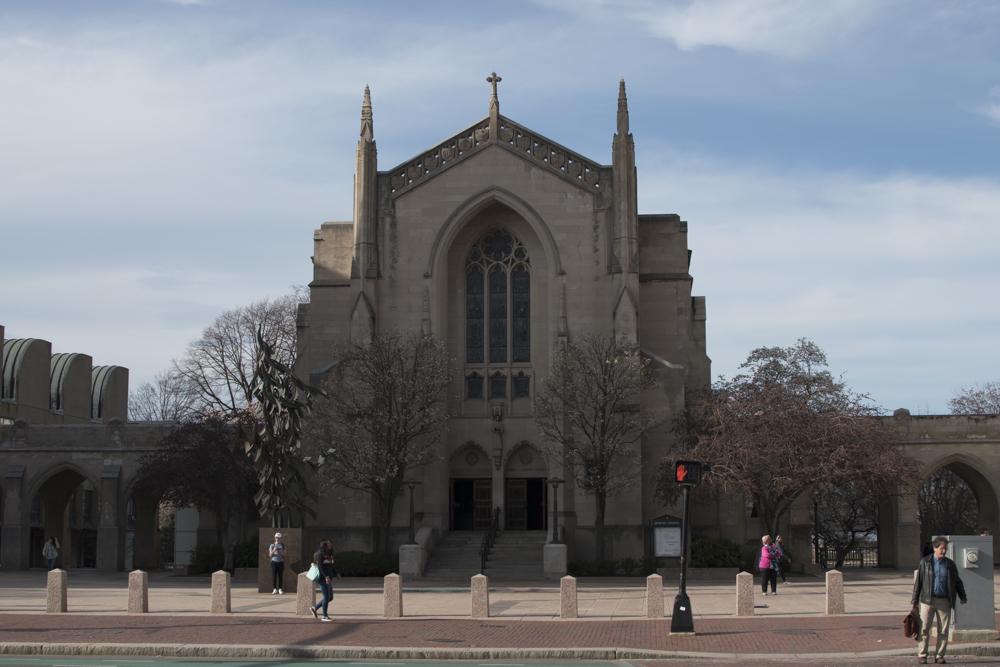By Conor Kelley and Shayna Scott
Boston University students are attempting to survive a week on food supplies similar to those provided to a refugee as part of Marsh Chapel’s Refugee Ration Challenge this week.
The challenge takes place during International Education Week, according to the Marsh Chapel website. International Education Week is an annual initiative by the U.S. Departments of State and Education.
Participating students received rations Sunday, according to the Marsh Chapel website. They must survive on the rations through Saturday, with an opportunity for supplements allowed Wednesday.
Ration boxes consist of nutrient-dense food like beans, fish, oil, flour and lentils, said Zach Crawford, the Graduate Chair for the Pardee School Initiative on Forced Migration and Human Trafficking. He said the rations are meant to provide the minimum micronutrients needed for survival.
“You go into any middle school cafeteria and those lunches tend to lack nutritious food that contains essential micronutrients,” Crawford said. “So in both cases, neither the quality nor the quantity of food is very optimal.”
Fees for the challenge were $10, according to the Marsh Chapel website. This amount covered the cost of rations and included a donation to Refugee Immigration Ministry, an organization that provides resettlement services, spiritual support and English education to refugees. Leftover food will also be donated, wrote Marsh Chapel Associate Emi Fermin in an email.
Marsh Chapel is also showing two films and holding a panel this week to educate the BU community on refugees, Fermin wrote.
Crawford said opportunities like the Refugee Ration Challenge can help students understand what it is like to be a refugee.
“Simulating that kind of a restricted diet could maybe help engender some empathy and help people understand what’s going on and how people can be more engaged with these issues,” Crawford said.
Julie Dahlstrom, the director of the Immigrants’ Rights and Human Trafficking Program at the School of Law, wrote in an email that along with showing students what the refugee lifestyle is like, the challenge could inspire students to find solutions to the problems refugees face.
“By focusing attention on the refugee crisis–in Syria and elsewhere–it draws attention, in a very human way, to the importance of developing innovative, interdisciplinary responses to the day-to-day problems confronted by refugees,” Dahlstrom wrote.
Events like this should serve to inspire students to further educate themselves, Dahlstrom wrote, and to get involved in efforts to combat challenges to human rights.
Zach Howland, a junior in the Questrom School of Business, said he thinks such simulation exercises are a valuable way of empathizing with others’ situations.
“In high school, we raised awareness for teenage homelessness where we slept out in cardboard boxes in the street in Boston, and it makes a huge difference,” Howland said. “It definitely gives you the perspective of what someone else is going through.”
Fermin wrote that even though the Refugee Ration Challenge is a “slight lived experience” for participants, it does not completely approximate what life is like for refugees.
“Regardless of how difficult their own week would be attempting to live off of rations, it will never be as tough as what a refugee would go through,” Fermin wrote.
Nina Taylor-Dunn, a sophomore in the College of General Studies, said since she doesn’t have to think about rationing her food, she feels for people who have to.
“If you have to ration food then you kind of value it more,” Taylor-Dunn said, “and maybe think about giving more to other people who don’t have as much as you do.”
Chloe Gao, a junior in the College of Communication and the College of Arts and Sciences, said she thinks this challenge reflects well on BU’s global awareness.
“I feel like it is such a nice thing for them to do,” Gao said. “I feel like people at BU have such a global mindset, and [the Refugee Ration Challenge] reflects their global mindset.”
As important as it is for students to understand the dietary challenges that refugees face, Crawford said that aspects of refugee life cannot be simulated, and the takeaway from this challenge should not necessarily be centered around diet.
“I think you can simulate a restricted diet all you’d like,” Crawford said, “but you can’t really simulate being forcibly separated from your homeland, or you can’t simulate the difficulties integrating into new communities and you can’t really simulate the feeling of not knowing whether your family or your neighbors are still alive.”
Clarissa Garza contributed reporting.
CORRECTION: A previous version of this article incorrectly stated Crawford’s position. An updated version of this article reflects this correction.























































































































